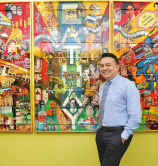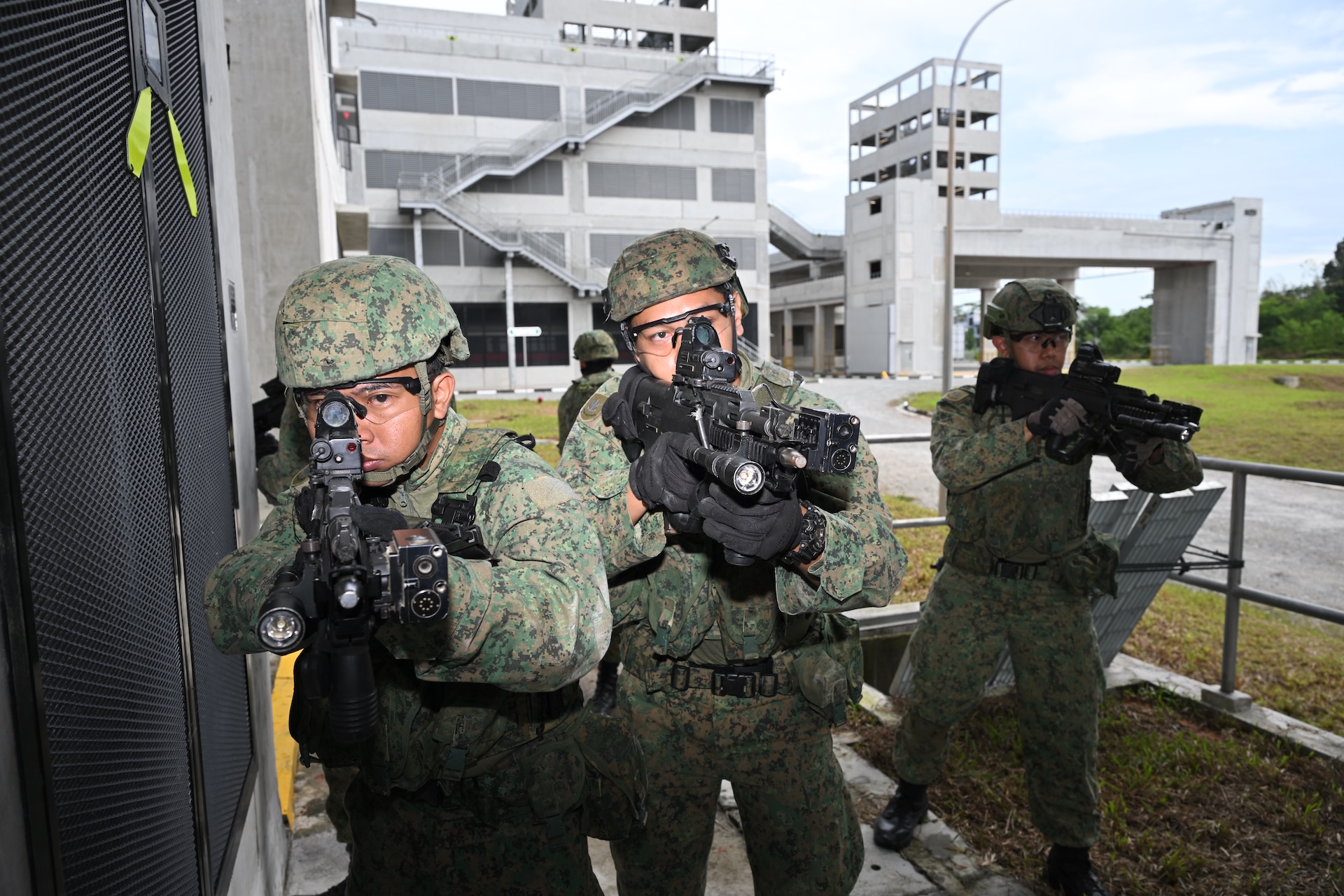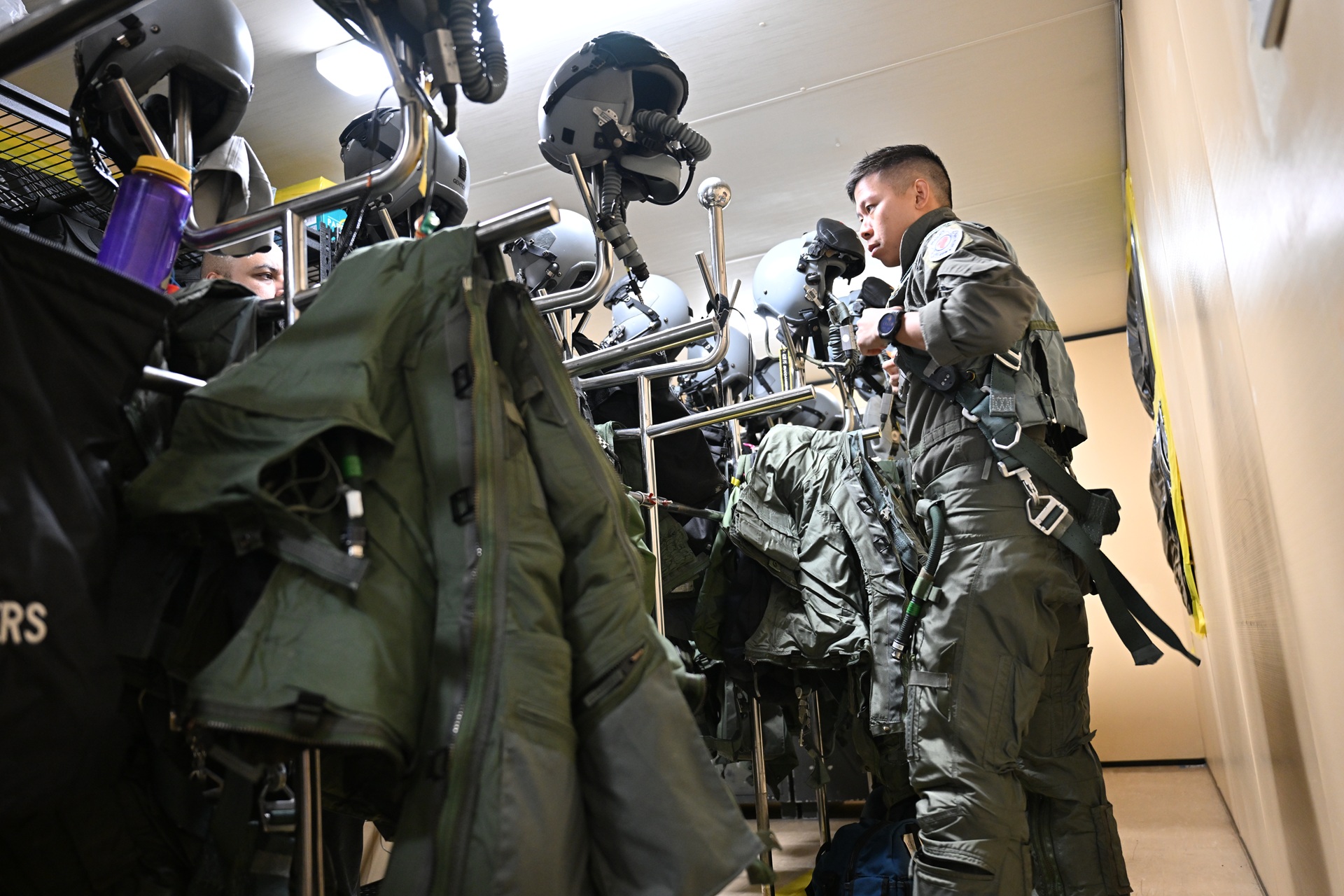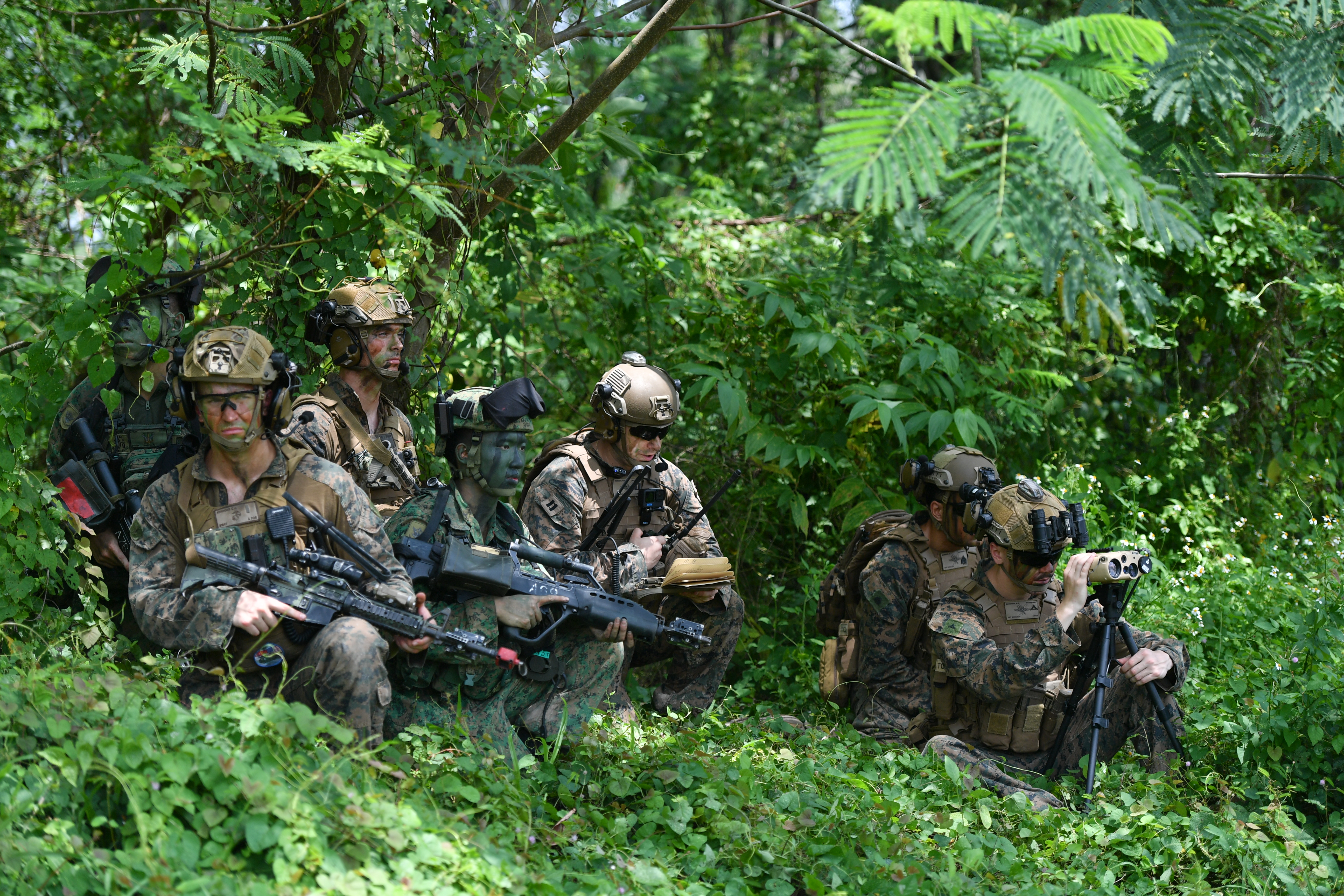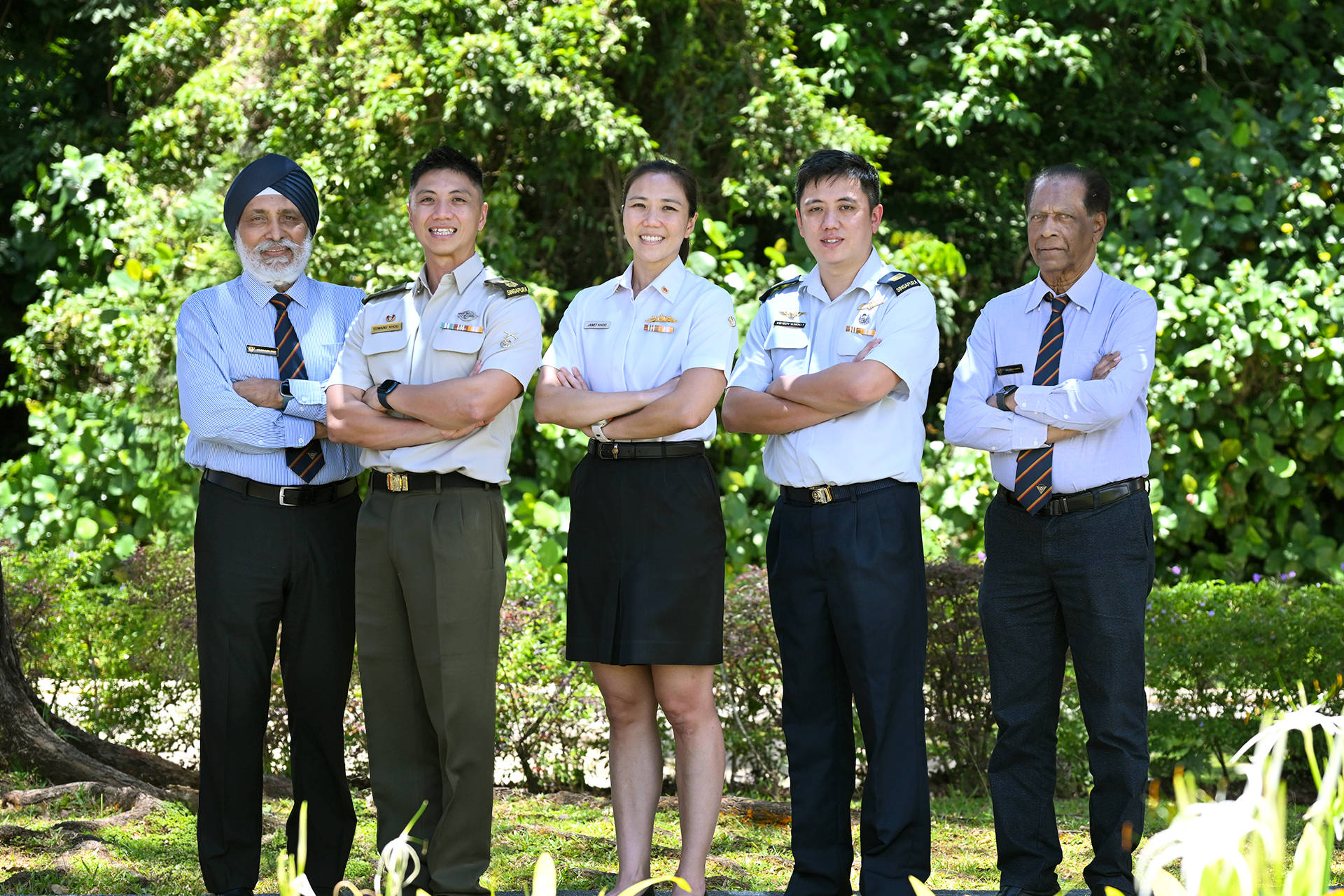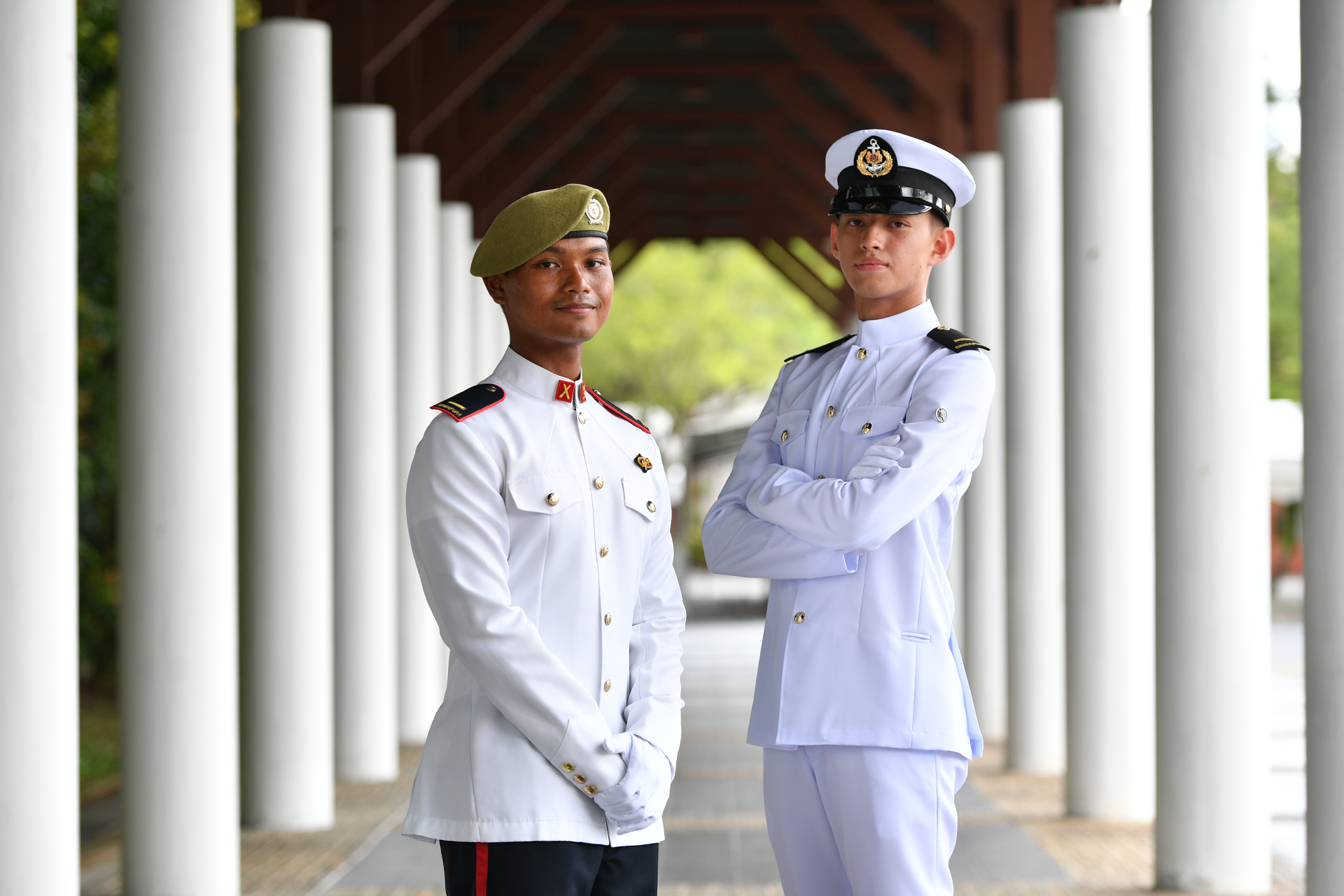BIG JOB, BIG HEART
PHOTO // Chai Sian Liang
From selling chickens and cleaning linen to being the Chief Executive of Cathay, Mr Suhaimi Rafdi has done it all. Despite his success, he has always kept himself grounded.
Looking at his well-tailored suit, confident posture at the head of the table in a large conference room and the Starbucks coffee in his hands, you would never have guessed that the current Chief Executive of Cathay Organisation was once a counter boy at KFC.
Through his stories, it was clear that the father of four - of whom two are adopted - has a soft spot for people. With a smile, he recounted his previous job as a Housekeeping Manager at Singapore General Hospital; he taught "ah-mas" how to clean up bedpans properly, and won their hearts by being patient and even teaching them how to "read" with pictorial cards. Those moments of nostalgia quickly flew by as he moved on to talk about how he was, by a stroke of luck (and some skill of course!), headhunted by Cathay at the age of 28.
"I thrive under pressure," said the 46-year-old. And the glow on his face was the evidence. It's been six years since he held the Cathay chief position and he is still going strong. Here's his rags-to-riches story.
PNR: In Cathay, you had to make changes to the organisational structure on the ground which involved the older generation. How did you deal with that?
It's all about good communication and being very above board. I had to tell them firmly: "My job is to make changes. It might strain our relationship but I want to let you know that it s not personal and I hope that you can respect the decisions and changes that I want to make. If you are with me on this, stay on. But if you are not, the doors are not closed."
I also had to lead by example. Burning hours in the office during those first few years of the job was crucial. I also made sure that while we worked hard, we played hard too. Whenever we did well, I would give them little treats, such as staff lunches, which they treasured very much.
What have you learnt about people management over the years?
That I have to be very, very patient and have lots of perseverance. Even today, 60 percent of my time is dedicated to people management. Your own work can be fairly easy, but without them (other people), you can t do the job. And when you have people from diverse backgrounds with all sorts of attitudes and characters, you have to juggle them and know when to control and when to let go.
You were a Corporal during your National Service (NS) days. What was your NS experience like?
Punctuality, transparency and integrity are key elements that I picked up during NS. That was also when I learnt the consequences of not doing things right the first time. Because I got married at 18 and had a family to feed, I was already disciplined to a certain extent. NS toughened me up. It gave me the extra discipline that I needed to have in my daily work.
What I also found rewarding was the cohesion and camaraderie. Back then, it was already about team building - that everything was not about me or you, but we as a group.
As a member of the CSNS (Committee to Strengthen NS) working group, what are your personal views on NS?
We have a good defence system in place and I think what the Government is trying to do is see this through with continuity and ensure that there are no lapses. For example, one of the ideas that came up during the discussions was to hire more Regulars to train soldiers more efficiently and effectively.
Your eldest son is 26 and has already completed his full-time NS. What advice did you give to your son when he enlisted?
I told my son to try to get things right the first time and don t be too much of a smart aleck. Be a team-player, don't be aloof or try to be Mr Smart Guy and try to win over everybody. Discipline and teamwork are important, so learn everything in camp and make the best of it.
As for my four-year-old son, I think it's going to be his elder brother who will advise him. I will have lost touch by the time he enlists!
Your story has inspired many. What kind of advice would you give to them?
There's no glass ceiling in any organisation unless you perceive as such. Race or culture is not an issue. What we're looking for is the individual's capabilities.
How would I have known that Cathay does not have a glass ceiling (other than by) working really, really hard?
